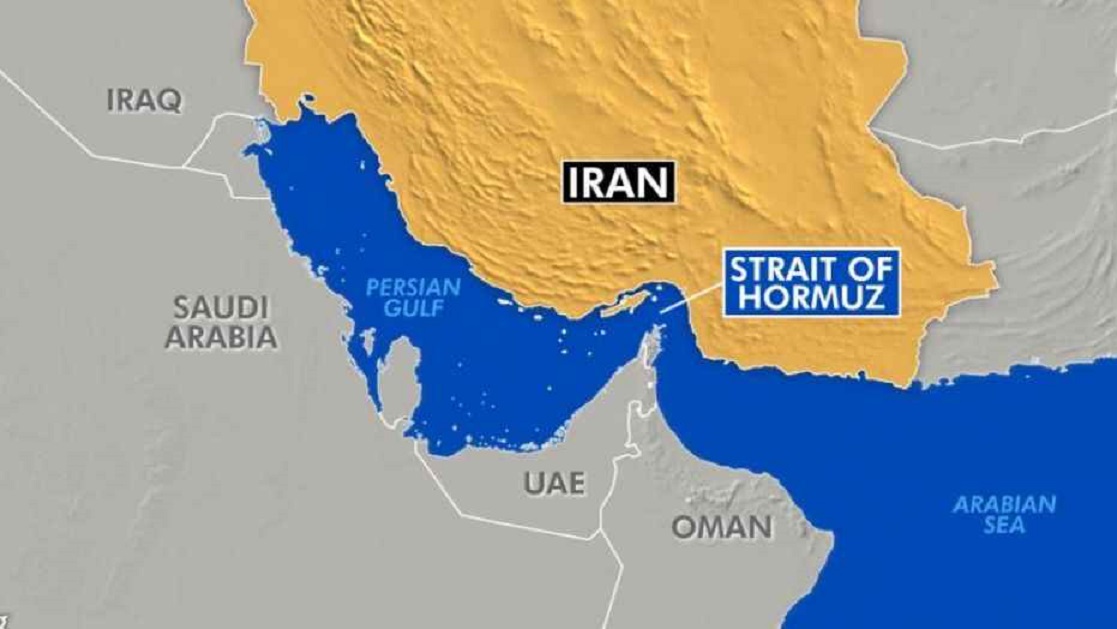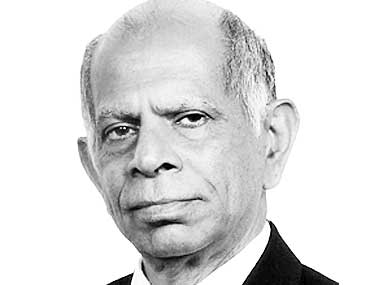We are witnessing a rapidly aggravating crisis that can result in the outbreak of hostilities with consequences, unintended, uncontrollable and possibly frightful for the region and the rest of the world. We have not seen any serious effort on the part of the adversaries or others to de-escalate the crisis that originated with President Trump’s decision in May 2018 to walk out of the Iran nuclear deal, technically known as the JCPOA (Joint Comprehensive Plan of Action).
Sir Kim Darroch, U.K.’s Ambassador in Washington at that time correctly characterized Trump’s action in his secret report to the Foreign Office as ‘diplomatic vandalism’ primarily taken to undermine predecessor Obama’s legacy. Obviously, such a recklessdecision, taken without due examination of the pros and cons by professionals can have disastrous consequences. What is important to note is that when the U.S. takes such decisions, the consequences can be injurious not only to U.S. and the state concerned, but also to the larger international community.
Those who have argued that a hot war can be ruled out, since both Trump and the Iranian leadership have asserted time and again that they do not want a war, are being rather naïve. World War 1 broke out in August 1914 not because any of the belligerents wanted war. It was caused primarily because of grave errors of judgment on the part of Vienna and Berlin. The former was convinced that it could humiliate and attack Serbia without provoking Russia militarily. Similarly, the military leadership in Berlin convinced the Kaiser that Germany could violate the neutrality of Belgium and march through it to invade France without provoking a military response from London. In the present case, U.S. National Security Adviser John Bolton and, perhaps to a lesser extent, Secretary of State Mike Pompeio, seem to believe that by sending a series of Tomahawk missiles to chosen targets in Iran, it would surrender with alacrity, rush to negotiations in sack cloth and ashes, and sign on the dotted line. Those who know Iran have a different assessment.
President Trump knows that if ‘body bags’ start coming in when and if Iran and its regional proxies target American military in the region, his own chances of re-election might be imperiled. Nevertheless, unless classical diplomacy steps in, there is the risk of a war breaking out. Once it does, nobody can control its spread in this highly inflammable region. Saudi Arabia has most of its oil in the eastern part where there is a concentration of Shias. Bahrain has a Shia majority with a Sunni monarchy that could be saved only after Saudi Arabia sent in security forces there in March 2011 when the Arab Spring started.
Before we figure out a diplomatic exit out of the current impasse it is necessary to clarify one or two issues.
The Geo-politics of the Strait of Hormuz
The Strait of Hormuz is of crucial importance to the trade in oil and gas. 26% of L.N.G. and 20% of oil globally produced have to pass through the strait. For Saudi Arabia, Kuwait, U.A.E, Iraq, Iran, and Qatar the Strait of Hormuz is the principal export route. It is a waterway separating Iran and Oman, connecting the Persian Gulf to the Gulf of Oman and the Arabian Sea. It is 21 miles wide at its narrowest point, but the shipping lane is only two miles wide in either direction. Under UNCLOS (United Nations Convention on Law of the Seas), a coastal state can claim up to 12 nautical miles (13.8 miles) as territorial waters. It follows that the Strait of Hormuz falls within the territorial waters of Iran and Oman. International navigation is permitted, but the waters are territorial.
U.K. and its supporters have been talking about ‘freedom of navigation in an international strait’. Such talk is inaccurate in law to put it mildly. It will be more accurate to speak of ‘innocent passage’ through territorial waters in the current context. ‘Freedom of navigation’ is a wider concept that applies to high seas also. The coastal states are entitled to designate shipping lanes in their territorial waters under international law. U.K. lacks the naval power to assert itself in or near the Striate of Hormuz. When Iran captured the British-flagged tanker Stena Impero, a British frigate H.M.S. Montrose in the nearby waters unsuccessfully tried to intervene. Junior Minister Tobias Elliot summed up the position when he said, "Our Royal Navy is too small to manage our interests across the globe if that's our future intentions and that's something the next prime minister will need to recognize."
London has threatened Iran with economic sanctions. The E.U. has urged Iran to release the tanker, but we do not know whether France and Germany will agree to impose sanctions on Iran when the status of JCPOA is delicately balanced. In his statement in the House of Commons (22nd July) following an emergency meeting of COBRA, the Cabinet Committee to deal with national emergency, Foreign Secretary said that if Iran does not release the tanker, “U.K. will seek to organize a European-led naval contingent for the Gulf to escort ships.”(Italics added.) It is to be noted that London is “seeking” such a partnership with Europe as Brexit is looming on the horizon. In any case, it will take time for the naval contingent to be deployed, assuming that Europe wishes to do that.
Yet another point not mentioned by the Western media is that London has not so far produced proof that the cargo was meant for Syria. What is even more pertinent is that E.U. sanctions on Iran do not provide authority to any member state to stop a third country’s ship even it is carrying cargo for Syria. E.U. sanctions apply only to E.U. member states. Iran has been sending oil to Syria even after E.U. imposed sanctions. In the present case, London did it on ‘advice’ from John Bolton. It is also to be noted that though the British-flagged tanker was taken over on 18th July, Riyadh came out with a public declaration calling for its release only two days later. It characterized Iran’s action as “completely unacceptable” and urged world powers to “take actions to deter such behavior.”
On 27th June 2019, a news conference at the NATO Defense Ministerial in Brussels, U.S. Acting Secretary of Defense Esper said he asked allies to join a coalition of "like-minded countries" that would support freedom of navigation in the Strait of Hormuz through "broader maritime surveillance." But so far Washington has not found any ‘like-minded’ country.
A Possible Diplomatic Resolution
We need to distinguish between the crisis between U.K. and Iran and the one between U.S. and Iran. The U.K. acted on Washington’s bidding to detain an Iranian super- tanker Grace 1 sailing off the coast of Gibraltar carrying about 2 million barrels of oil (4thJuly). Obviously, Iran detained Stena Impero in retaliation to Britain’s detaining Grace 1. Equally, obvious is that both the tankers should be released. It is not beyond diplomacy to work out a deal. The only snag is that if Boris Johnson comes in as Prime Minister, he might not start his innings by an act that would not please Trump. But, perhaps, Trump himself might welcome some de-escalation.
Coming to the larger issue of the mounting tension between Washington and Teheran, there is no immediate diplomatic solution. What is important is to prevent further escalation. Both sides should and can exercise restraint in their public pronouncements though Trump might find it not easy not to tweet. Ideally, if Trump suspends the sanctions Iran will agree to sit down and talk about JCPOA. Iran is unlikely to agree to sit down and talk with U.S. about caps on its missiles programme and assistance to its allies (the Hamas in Gaza, Hezbollah in Lebanon, the armed Shia groups in Iraq). Nor will Tehran agree to get out of Syria.
Possible Long- Term Scenario
London has approached the Security Council. Let us wait and see what position China and Russia take. They are unlikely to agree to action against Iran. Bloomberg has reported that considerable quantities of oil from Iran are in bonded tankers in China. Washington has announced sanctions against the Chinese company involved. We need to watch Beijing’s response.
If China and Russia take a strategic decision to support Iran, we might see a solid Moscow-Beijing- Tehran axis in the making. That will, if it happens, change geo-politics to a degree that India and the rest of the world would need to take note of.
Image Source: https://a57.foxnews.com/media2.foxnews.com/BrightCove/694940094001/2019/06/21/931/524/694940094001_6050822982001_6050822507001-vs.jpg?ve=1&tl=1










Post new comment